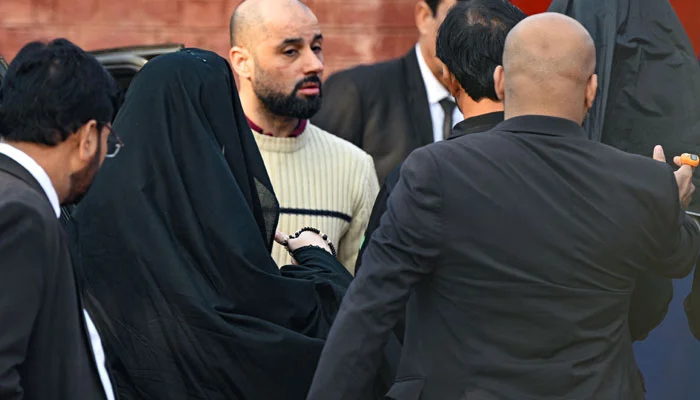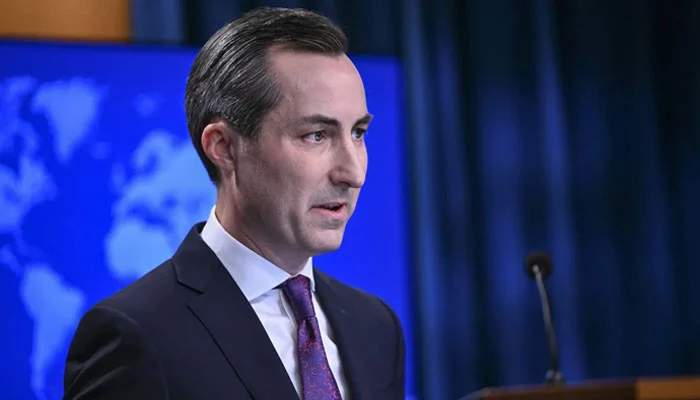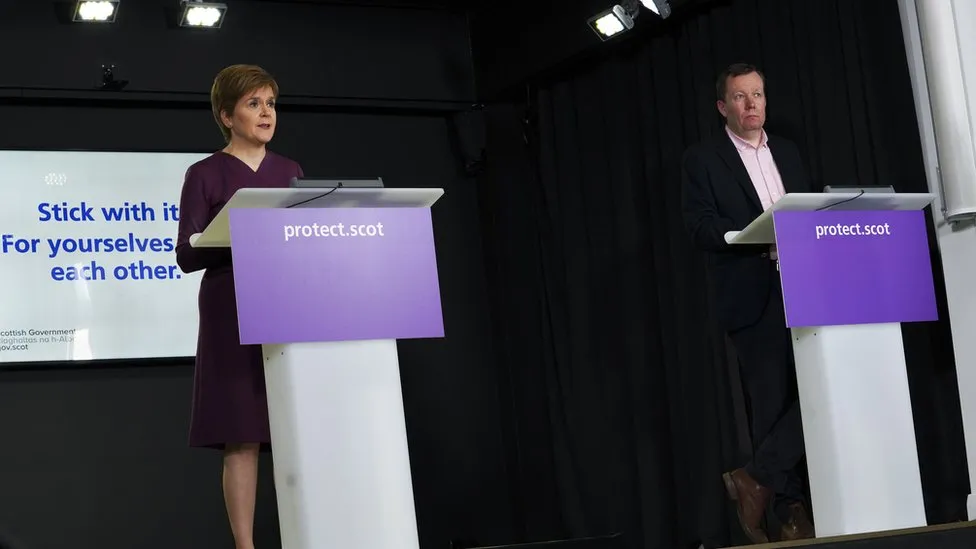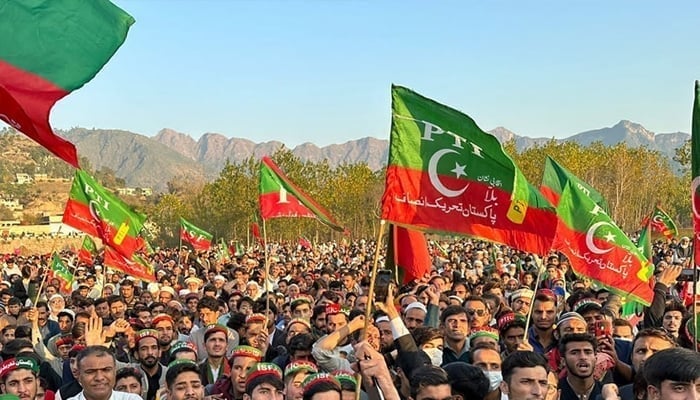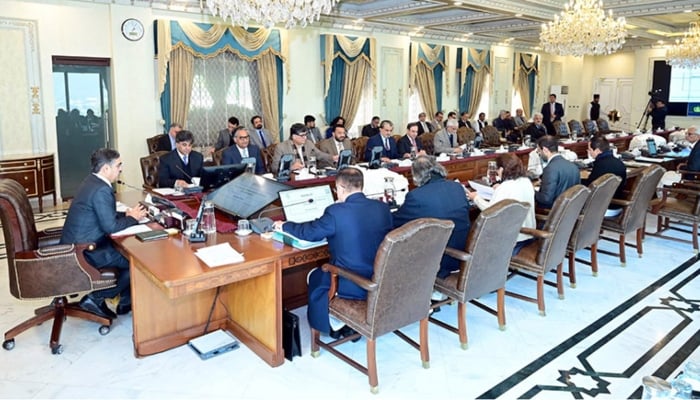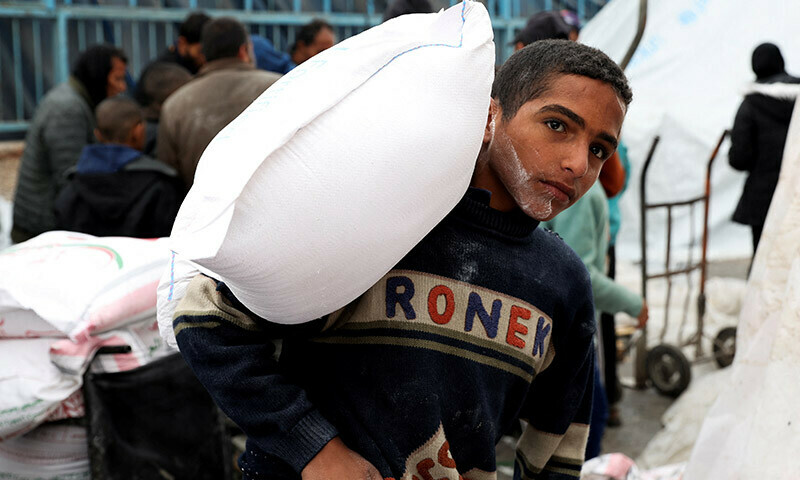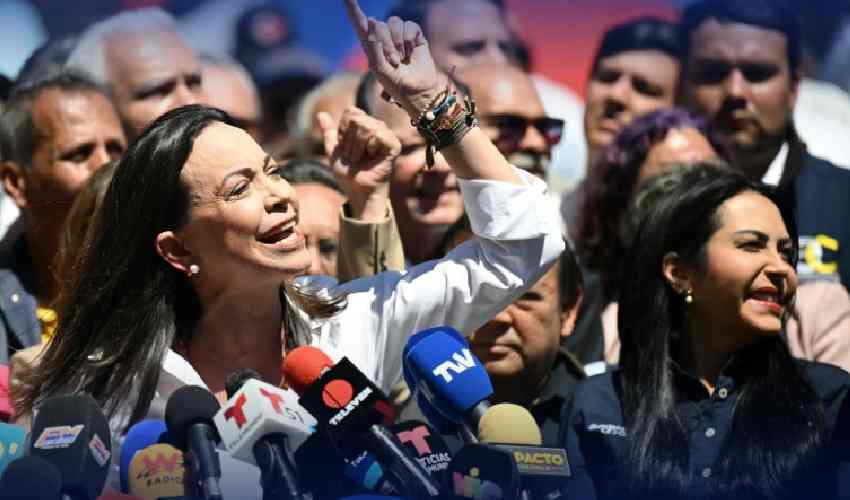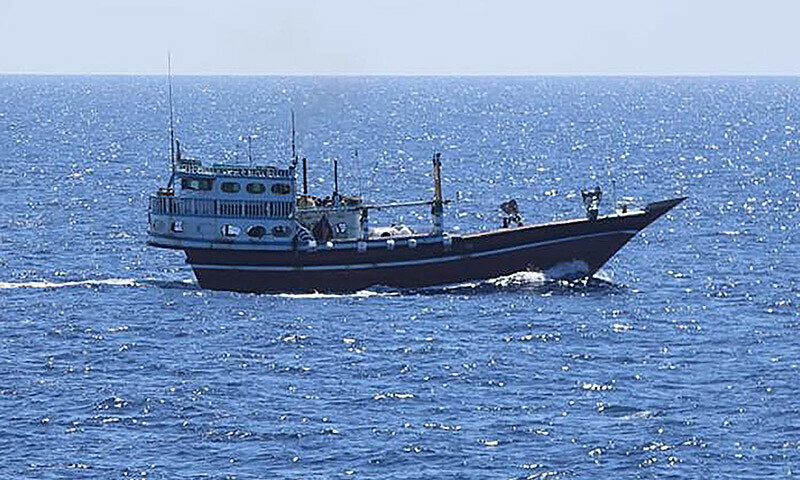ISLAMABAD: Bushra Bibi, the wife of Pakistan Tehreek-e-Insaf (PTI) founder Imran Khan, surrendered before the authorities shortly after she along with her spouse awarded a 14-year jail term each in the Toshakhana case.
Bushra Bibi arrived at Adiala Jail in Rawalpindi from where she surrendered and was taken into custody by police.
Accountability court’s Judge Muhammad Bashir on Wednesday announced the Toshakhana verdict related to the illegal selling of state gifts.
The court also disqualified the former prime minister for 10 years from holding public office besides imposing a fine of Rs1.57 billion — 787 million each —on the couple.
During the previous hearing, which was also held at Adiala jail, the court recorded Bushra Bibi’s statement under Section 342.
Khan told the court that his wife had nothing to do with the case and was being humiliated by being forcibly dragged into it.
At the outset of the hearing today, Judge Bashir asked Khan if he recorded his statement. To this, the former premier said that he would submit his statement once his lawyers came.
“I have been deceived as I was only called to mark my attendance for the hearing,” said the PTI founder.
The sentencing by an anti-graft court in Islamabad comes a day after Khan and PTI senior leader Shah Mahmood Qureshi were handed a 10-year jail term in cipher case related to the leaking of state secrets.
Khan was also handed a three-year prison sentence in August last year by the trial court for selling gifts worth more than 140 million rupees ($501,000) in state possession and received during his 2018-2022 premiership.
Wednesday’s verdict was linked to the same matter, but followed an investigation by the top anti-graft body, the National Accountability Bureau (NAB), which had also charged his wife in the case.
Khan’s earlier three-year sentence was later suspended but Khan remains behind bars in connection with other cases. He has said that he legally purchased the state gifts.
Government officials have alleged Khan’s aides sold the gifts in Dubai.
Established in 1974, Toshakhana is a department under the administrative control of the Cabinet Division and stores precious gifts given to rulers, parliamentarians, bureaucrats and officials by heads of other governments and states and foreign dignitaries as a goodwill gesture.
It has valuables ranging from bulletproof cars, gold-plated souvenirs and expensive paintings to watches, ornaments, rugs and swords.
Under the rules governing Toshakhana — a Persian word meaning “treasure house” — government officials can keep gifts if they have a low worth, while they must pay a dramatically reduced fee to the government for extravagant items.
The Toshakhana has been under a microscope ever since the emergence of the allegations that Khan purchased the gifts he received as prime minister at throwaway rates and sold them off in the open market for staggering profits.
The 70-year-old cricketer-turned-politician was accused of misusing his 2018 to 2022 premiership to buy and sell gifts in state possession that were received during visits abroad and worth more than Rs140 million.
The gifts included watches given by a royal family, according to government officials, who have alleged previously that Khan’s aides sold them in Dubai.
Moreover, seven wristwatches, six made by watchmaker Rolex, and the most expensive a “Master Graff limited edition” valued at 85 million Pakistani rupees ($385,000), were also among the gifts.
A reference was forwarded by National Assembly Speaker Raja Pervez Ashraf to the Election Commission asking it to probe the matter.
In October 2022, the electoral body declared the former premier guilty of corrupt practices and filed a complaint in an Islamabad court.


